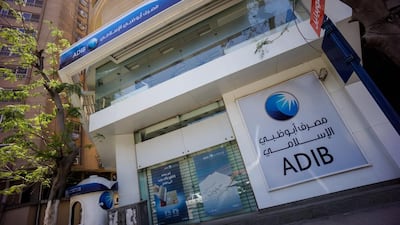Nearly two decades on from the first signs of a market geared specifically towards Muslims, a new trend is emerging among consumers – one that emphasises the importance of ethical consumption. And the religious imperatives upon which they are basing their requirements mean it is starting to have an impact on the wider marketplace and consumer behaviour.
Over the past 20 years, Muslim consumers have been searching for brands and products that speak to their religious identity. According to the seventh edition of the State of the Global Islamic Economy report published last week, Muslims spent $2.2 trillion last year on food, pharmaceuticals and lifestyle products and services. This is set to rise to $3.2 trillion by 2024. Islamic financial assets last year were reported to be worth $2.5 trillion.
According to the Pew Research Centre website, there are 1.8 billion Muslims worldwide – a number set to grow to 2.2 billion by 2030. The Muslim population is also becoming increasingly affluent: the combined GDP of member states within the Organisation of Islamic Co-operation is predicted to grow by 6.2 per cent by 2023 – higher than the global growth rate of 5.8 per cent projected during the same period.
Muslim identity has become a powerful driver of consumption. In the Asia-Pacific region, for instance, the share of those who say religion is very important in their daily lives is highest in Muslim-majority countries such as Pakistan and Indonesia, according to a report published by Pew Research Centre last year; in these countries, more than 90 per cent say religion is very important. With the majority of Muslims under the age of 30 and many living in countries with large consumer markets, such as Indonesia, Malaysia and the UAE, there is immense potential for the global community to flex its muscle in the marketplace. In 2013, for example, the Dubai Islamic Economy Development Centre was established in line with the UAE's ambition to become the global capital of the Islamic economy.
Manufacturers and producers are taking note. Since the first shoots of the Islamic economy began to appear in the 2000s, a new generation of Muslim consumers has come of age. Along with their older counterparts, whose thinking about how ethically and sustainably they lead their lives has matured, their religious values are at the heart of their consumption. But there has been a shift towards a more universal language of ethics, beyond mere halal and shariah-compliant labels.
Take the issue of origin and traceability of food. Muslim consumers are concerned about whether a halal label represents the ethics they aspire to in animal welfare beyond simply being labelled halal.

When it comes to concern about climate change, Muslim consumers adhere to the belief that human beings are referred to in the Quran as guardians of planet Earth. This motivates their product and lifestyle choices. Many are turning to vegan options in the food and beauty sectors. Vegan brands appeal because they are not only halal but also more sustainable.
These are, of course, part of a wider movement towards ethical businesses and products. But for Muslim consumers, there is an additional compelling element: the religious imperative means that their actions – having chosen to be observant Muslims – become non-negotiable. They are in pursuit of products that fulfil their religious ethical demands.
Halal brands are now finding their way into a wider consumer beauty movement seeking cruelty-free, animal-free products. Consumers who are not Muslim are buying into the values these brands are built on. Some of these Muslim-inspired halal brands have been repositioning themselves based on their ethics rather than their compatability with an Islamic lifestyle.
Islamic finance has also been undergoing an ethical revival by emphasising its principles of financial justice and community sharing. Islamic banks say a large proportion of their retail consumers are not Muslim and come to them for ethical reasons. Equally, their returns – which the banks often say are based on the principles they use for investment – are an attraction. In the UK for example, shariah-compliant savings accounts now regularly make it into the consumers' top 10 lists.
When the seeds of the Islamic economy were first sown in the early 2000s, the strong Muslim consumer voice was missing from product and brand development. But they are becoming more sophisticated and vocal, and want both ethics and religious compliance in order for brands to secure their Muslim pound or dollar. So, for the Islamic economy to survive today, there must be a marriage of both these aspects. Otherwise, it is just a label.
Shelina Janmohamed is the author of Love in a Headscarf and Generation M: Young Muslims Changing the World

